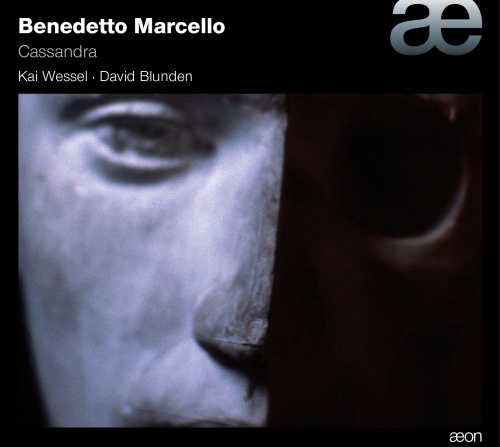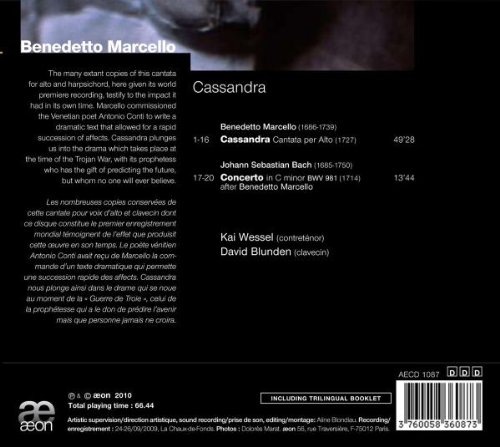
kompozytor
Marcello, Benedetto
tytuł
Marcello: Cassandra - kantata
wykonawcy
Wessel, Kai;
Blunden, David
Blunden, David
nr katalogowy
AECD 1087
opis
The Venetian poet Antonio Conti received from Marcello the commission for a dramatic text that allows a quick succession of events, rather than the usual succession of recitative and arias. Cassandra plunges us into Homer’s Trojan War, with its namesake prophetess who has the gift of predicting the future, but whom no one believes. The many [25] extant copies of this cantata, here given its world première recording, testify to the impact it had in its own time. Charles Burney reports a performance in Venice in 1770 at which the cantata was impressively interpreted by a bass, but almost all the manuscripts are headed by ‘Cantata per Alto’. The range of the vocal part stretches more than three octaves, which explains the difficulty in finding an interpreter able to sing it: it may be that Cassandra was sung by a bass performing as an ‘altus’. Following the practice of the time, Kaï Wessel and David Blunden have taken the liberty of improvising interludes at a few points where the action shifts between vision and oracle – in concert these also provide brief moments of rest for the voice.
nośnik
CD
gatunek
Muzyka klasyczna
producent
Aeon
data wydania
30-04-2010
EAN / kod kreskowy
3760058360873

(Produkt nie został jeszcze oceniony)
cena 79,00 zł
lubProdukt dostepny w niewielkiej ilości.
Wysyłka w ciągu 3 dni roboczych
Darmowa wysyłka dla zamówień powyżej 300 zł!
Darmowy kurier dla zamówień powyżej 500 zł!
sprawdź koszty wysyłkiProduktu jeszcze nie zrecenzowano, chcesz być pierwszy?
Klienci, którzy kupili ten produkt, kupili również
1 / 11
Pozostałe płyty tego kompozytora
1 / 11
Pozostałe płyty tego wykonawcy
1 / 1


































